Who Controls America's Founding Story?
The battle for our past is really a battle for the future.
Editor’s Note: Teacher working conditions are student learning conditions. Right now, thousands of classrooms are missing the essentials—and we can change that in minutes. More than 5,000 teachers are still waiting for school supplies, and the school year has already begun in some parts of the country. Every time you help a teacher, you help every student in that classroom.
We’ve made it easy to help with our new Teacher’s Aid tool.
Click here to find a teacher, visit their Amazon wishlist, add a few items to your cart, and make their day.
And now, on to our feature story:
The night before the Declaration of Independence was signed, John Adams wrote a letter to his beloved wife, Abigail, with whom he shared thousands of pages of correspondence. She was his most trusted friend and adviser, and he shared with her that the vote Congress had just taken, the one in which they would formally break from Britain — it would be remembered for generations to come.
“It ought to be solemnized with Pomp and Parade,” he wrote, “with Shews, Games, Sports, Guns, Bells, Bonfires and Illuminations from one End of this Continent to the other.”
But Adams also knew that what lay ahead would not be easy: Britain was not apt to let them go without a fight. “I am well aware of the Toil and Blood and Treasure, that it will cost Us to maintain this Declaration,” he said.
And still, he believed it was worth it. “Posterity will triumph in that Day’s Transaction… even although We should rue it.”
He hoped, perhaps foolishly, that Americans of the future would remember the price they were about to pay.
For nearly 250 years, Americans have been trying to decide what the memory of independence should look like. What it means to celebrate a founding full of contradictions, how we can be a nation that promised liberty while enslaving people. How we could herald equality while also denying it to most.
But from the very beginning, there has always been an undercurrent of belief that most of us shared: the story we’ve told of how America did not belong to a king. It didn’t belong to a certain religion or nationality. America belonged, imperfectly, to each one of us.
That was the promise of the effort to recognize the 250th anniversary of the United States in 2026. The formation of an entity known as America250. A national moment to reflect. A commemoration not just of how we began, but of who we’ve become. It was supposed to be a celebratory history lesson.
Instead, it’s becoming a political campaign.
To mark this momentous anniversary, Congress created a nonpartisan commission in 2016. Members were Democrats and Republicans, including lawmakers, members of the executive branch, and private citizens, with oversight from all three branches of government. It was supposed to coordinate the planning of America’s semiquincentennial in 2026: a worthy celebration not of one president or one party, but of the people themselves.
The original vision was expansive. The commission’s 2019 report, titled “Inspiring the American Spirit,” promised the most inclusive commemoration in US history: 100,000 events across every state, territory, and tribal nation. Millions of participants. The commission asked the public to share ideas for how best to honor the milestone: “We want you to shape an America250 that is of, by, and for all the people,” the site once read. “Tell us how the American spirit sparks your creativity and imagination.”
In 2020, then-president of America 250 Tony Rucci said, “Our objective is to be fully inclusive in developing... [national] programs [for the celebration] and ensure we capture the voice of individual Americans in the process."
That invitation is no longer on the website.
And the programming that would have brought it to life, which included community exhibits, student contests, oral history projects, and grants for small-town museums, has now been replaced by something very different.
Earlier this year, a 25-year-old named Ari Abergel was appointed executive director of the commission. He previously worked at Fox News and as the deputy communications director for Melania Trump, and after assuming his new role, Abergel tried to pressure four sitting commissioners to resign. (To remove them outright would have required a two-thirds majority vote.)
The four commissioners in question weren’t Democrats. They had been appointed years ago by then–Speaker of the House Paul Ryan and then–Senate Majority Leader Mitch McConnell. One of them, speaking on behalf of the group to The Atlantic, said the move appeared designed to install Trump loyalists ahead of the anniversary, and that Abergel’s role “should have been reserved for a much more experienced and substantive candidate.” None of the four agreed to step down. Speaker Mike Johnson reportedly got involved to help pressure them.
And yet, despite failing to force those resignations, Abergel and his allies have steadily consolidated power over what the American public will actually see in 2026. Not just through the official America250 commission, but through a separate structure created under the Trump administration in 2020: a Defense Department–based task force chaired by Trump himself.
The “White House Salute to America 250 Task Force,” as it’s officially called, now oversees a significant portion of the programming for the anniversary, including its largest budget items, headline events, and external partnerships. The task force uses the same branding and language as the commission. In many cases, the public would have no reason to know there was a difference between the two, or that the task force was essentially bypassing the congressionally mandated system to pose as America250.
But the difference matters.
The task force is staffed almost entirely by Trump loyalists, including senior advisor Chris LaCivita, fundraiser Meredith O’Rourke, and events planner Justin Caporale, whose company Event Strategies helped coordinate the January 6 “Stop the Steal” rally. Under their direction, $33 million was budgeted for events that happened this year, like a military parade, a rally at Fort Bragg, and a July 3 kickoff event in Iowa where Trump told the crowd, “I hate Democrats. I cannot stand them, because I really believe they hate our country.” That event was branded under the America250 banner.
In recent months, federal resources have been diverted to support projects like a new National Garden of American Heroes — a statue park first proposed by Trump in 2020 — while 85% of the funding for other long-planned projects, like events run by local museums and other entities, has been abruptly canceled after DOGE cuts included laying off the majority of the National Endowment for the Humanities staff.
“This was going to be a moment that would be a big celebration for the country that recognizes the important work that state and local and national history organizations do,” John Dichtl, the president and chief executive of the American Association for State and Local History, said. “Instead, what’s happening is undermining all that. People are being told that this kind of work doesn’t matter.”
But it’s not just the event schedule or the grant-making that’s been reshaped. It’s the story being told.
As part of the 250th initiative, the White House task force has partnered with conservative Hillsdale College to release a video series called “The Story of America,” featuring narration by secretary of defense and former Fox host Pete Hegseth. PragerU, an organization run by talk show host and author Dennis Prager, has come on board to create a series of YouTube videos called “The Founders Museum.”
Corporate sponsors like Palantir, Lockheed Martin, and Coinbase have been added to the branding, and Trump says he wants to host a full championship UFC fight at the White House as part of the yearlong festivities.
According to The Wall Street Journal, President Trump is thinking of “partnering with conservative influencers and commentators on programming,” and Moms for Liberty, a group focused on banning books and DEI from public schools, has become a sponsor.
The tone is clear: this is a celebration of triumph, not an interrogation of the truth. America is described in terms of its “unprecedented greatness” and its “unimaginable achievements,” with few mentions of the contradictions and exclusions present at the founding.
There is no subtlety in the message. The executive order establishing the task force explicitly rejected “radical indoctrination” and called for a version of history that is “accurate, honest, unifying, inspiring, and ennobling.” But a historical education that is devoid of dissent, debate, or discomfort is no real education at all.
Nor is the message lost on educators who watched as their state-level funding disappeared while the federal government launched a “Patriot Village,” a traveling festival with “food courts, immersive AI history displays and that ‘Patriot Thunder Show,’ which includes pyrotechnics and original music.” And don’t forget the beagle mascot named “Liberty.”
Make no mistake: American history has been rewritten before.
Confederates didn’t just give up their beliefs because the Union won the Civil War. In the decades following, Confederates created a Lost Cause narrative — one that painted the South as having been unjustly attacked and invaded by the North. One that helped erect public monuments to Confederate leaders and created textbooks that spread nationwide, promoting the idea that the Confederacy was not just misunderstood, it was noble. The Civil War wasn’t about slavery, according to them, it was about states’ rights. These ideas were pervasive in some places until well into the 21st century. (Scratch that, they are still pervasive in some places.)
The Lost Cause wasn’t just a misremembering. It was a deliberate erasure — one that elevated political power over historical truth. And we are watching it happen again.
Today’s version isn’t being taught in dog-eared school books or with bronze monuments. It’s happening through federal grants, executive orders, branding decisions, and pyrotechnic shows. It’s happening in the replacement of educational initiatives with entertainment ones. It’s happening in who is silenced, who is spotlighted, and what the American people are encouraged to remember.
The original promise of America250 wasn’t perfection, it was participation. The idea that every town, every classroom, every community could take part in telling our collective story — messy, unfinished, complicated, and still unfolding.
That’s what has been lost.
And it matters, because what history will remember is still being shaped. If this commemoration becomes a vehicle for erasure, it won’t just fail to teach future generations. It will teach them something dangerous: that history is whatever the person in charge says it is.
But here’s the good news: we don’t have to surrender the narrative.
America250 doesn’t belong to the task force. Or the commission. Or the president. It belongs to us.
We can still organize community commemorations. Still support educators doing their work. Still fund local museums. Still tell the truth. Still remind each other that the story of America is not about how perfect we are, but about how determined we’ve been to become better.
That story is still worth telling.
And no one — not a task force, not a campaign, not a line item in a federal budget — gets to take it from us.



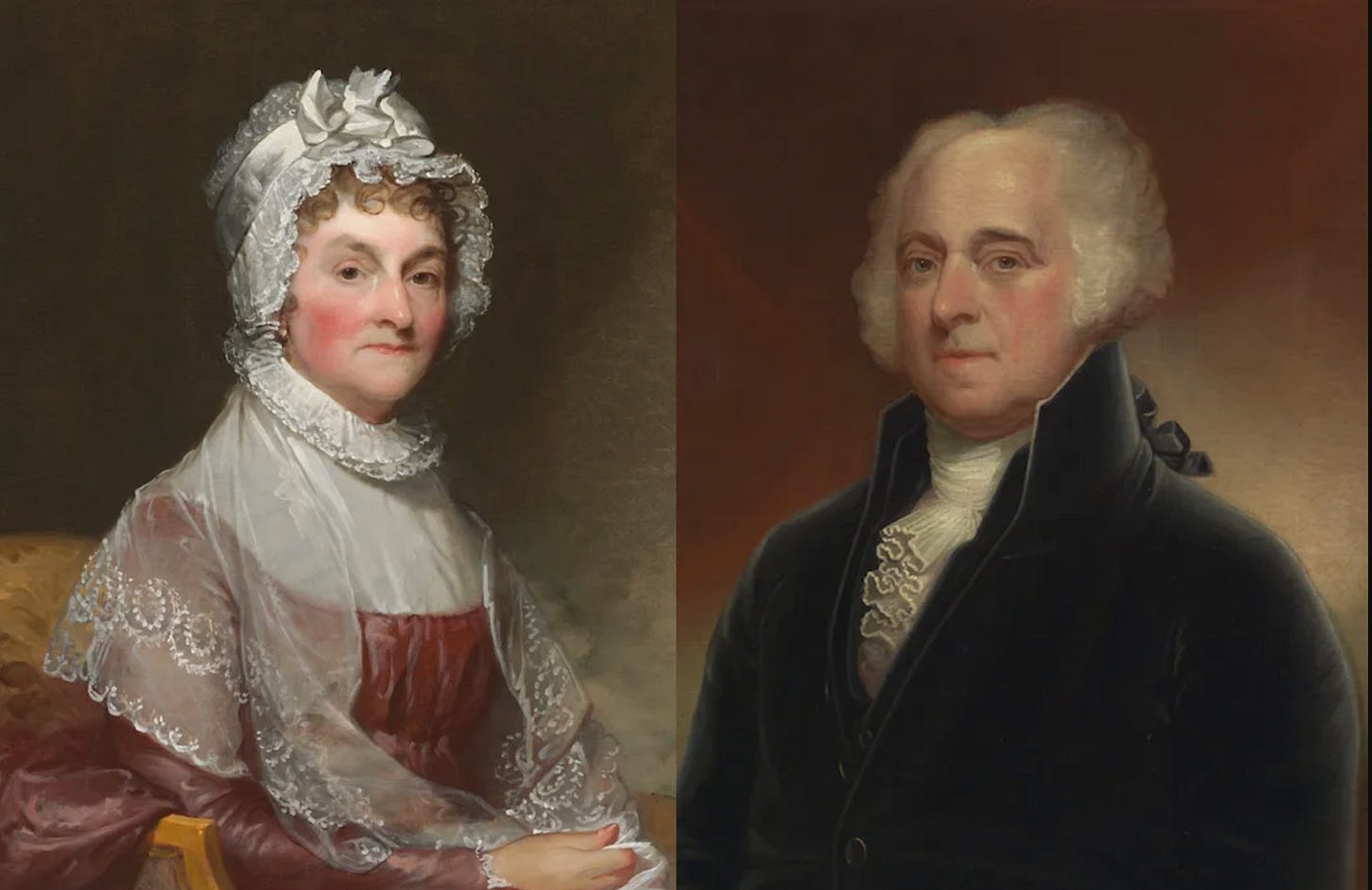
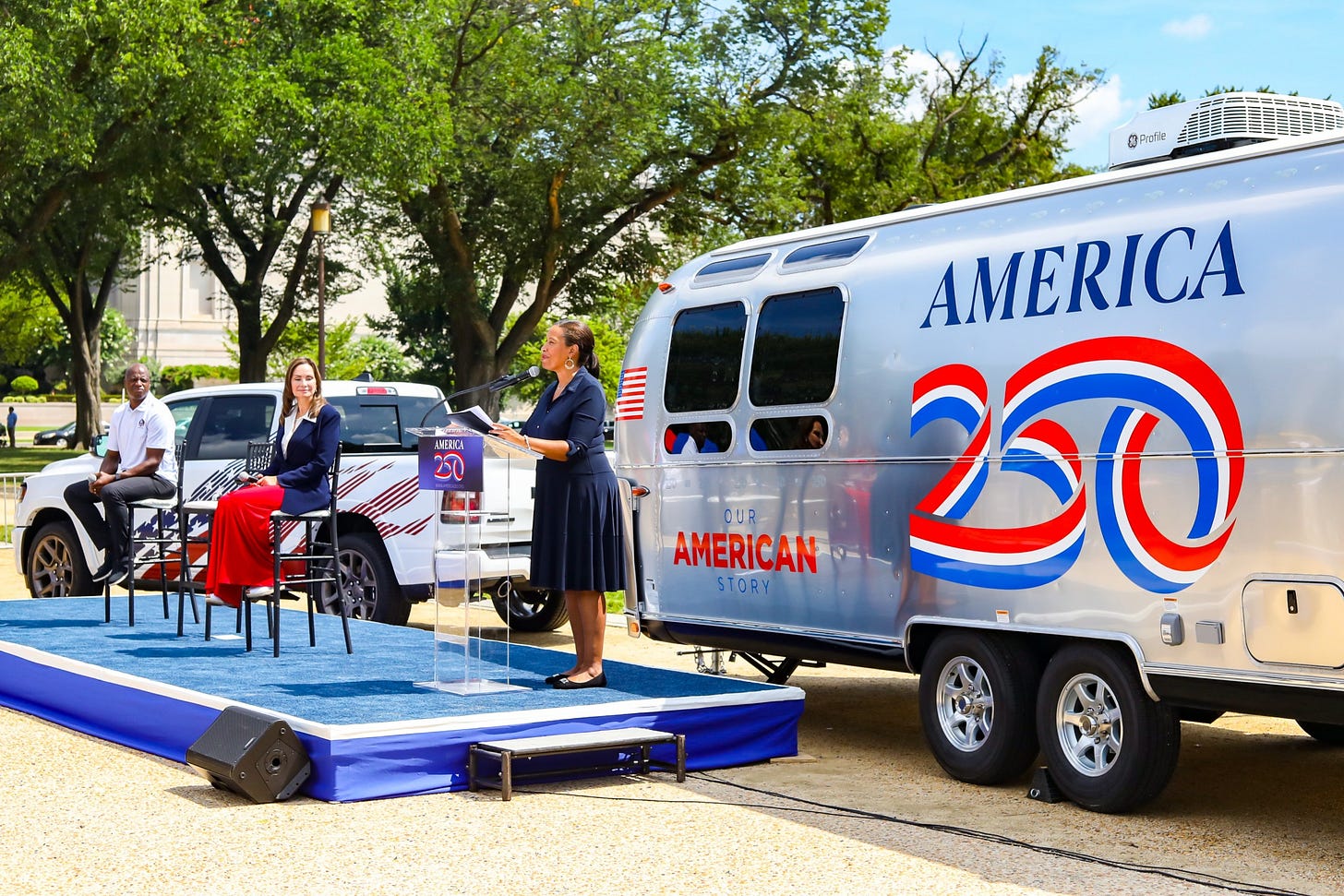
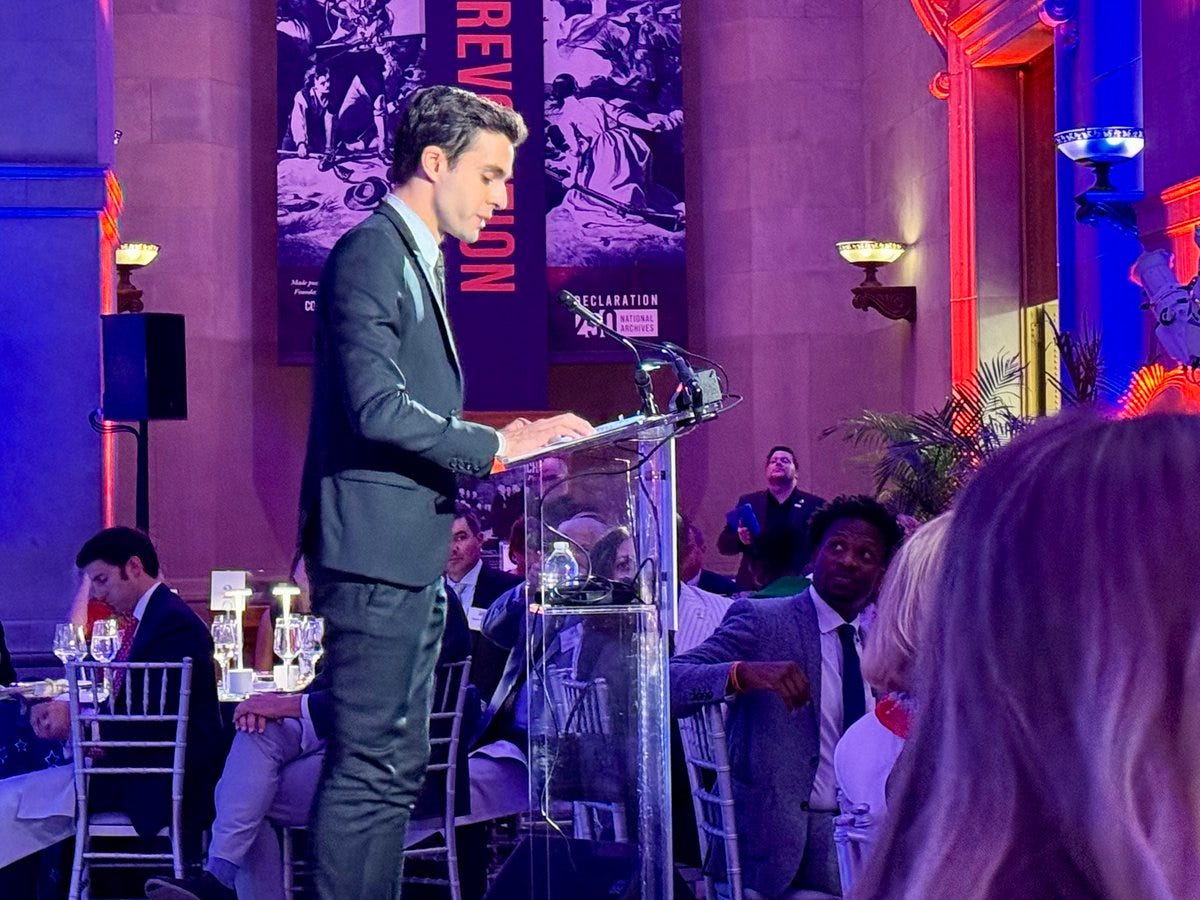

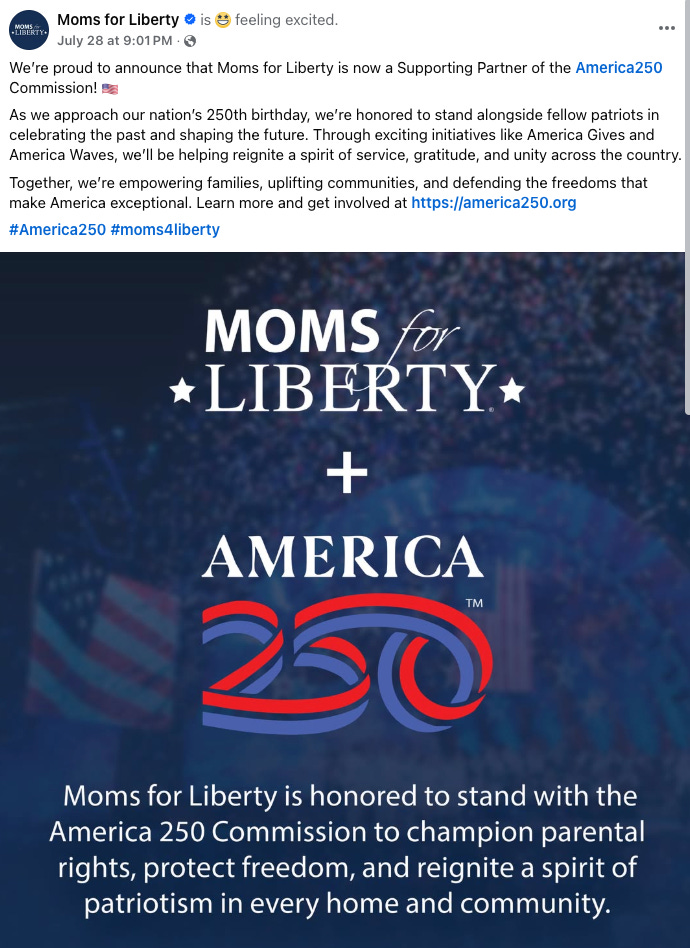
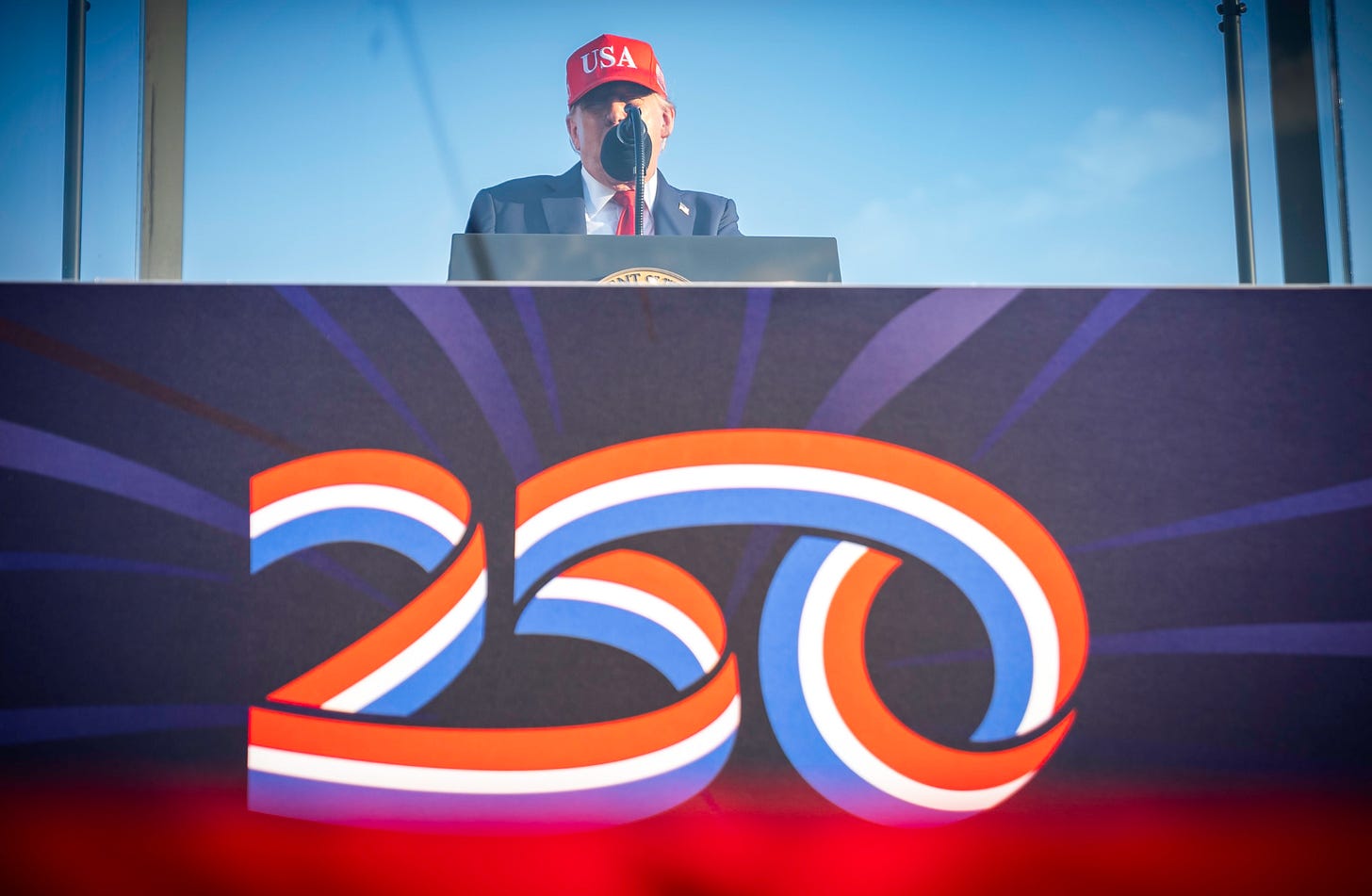
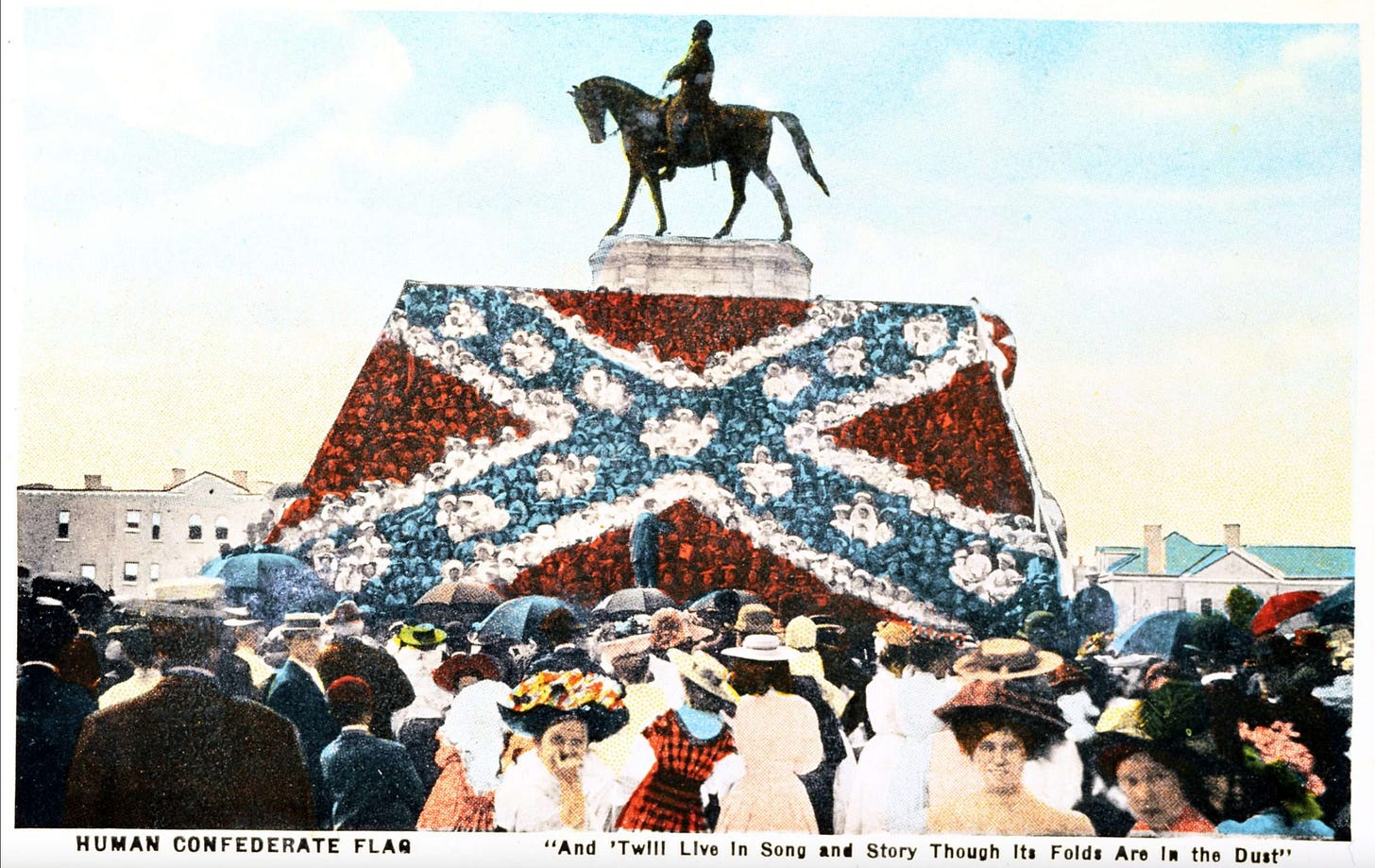
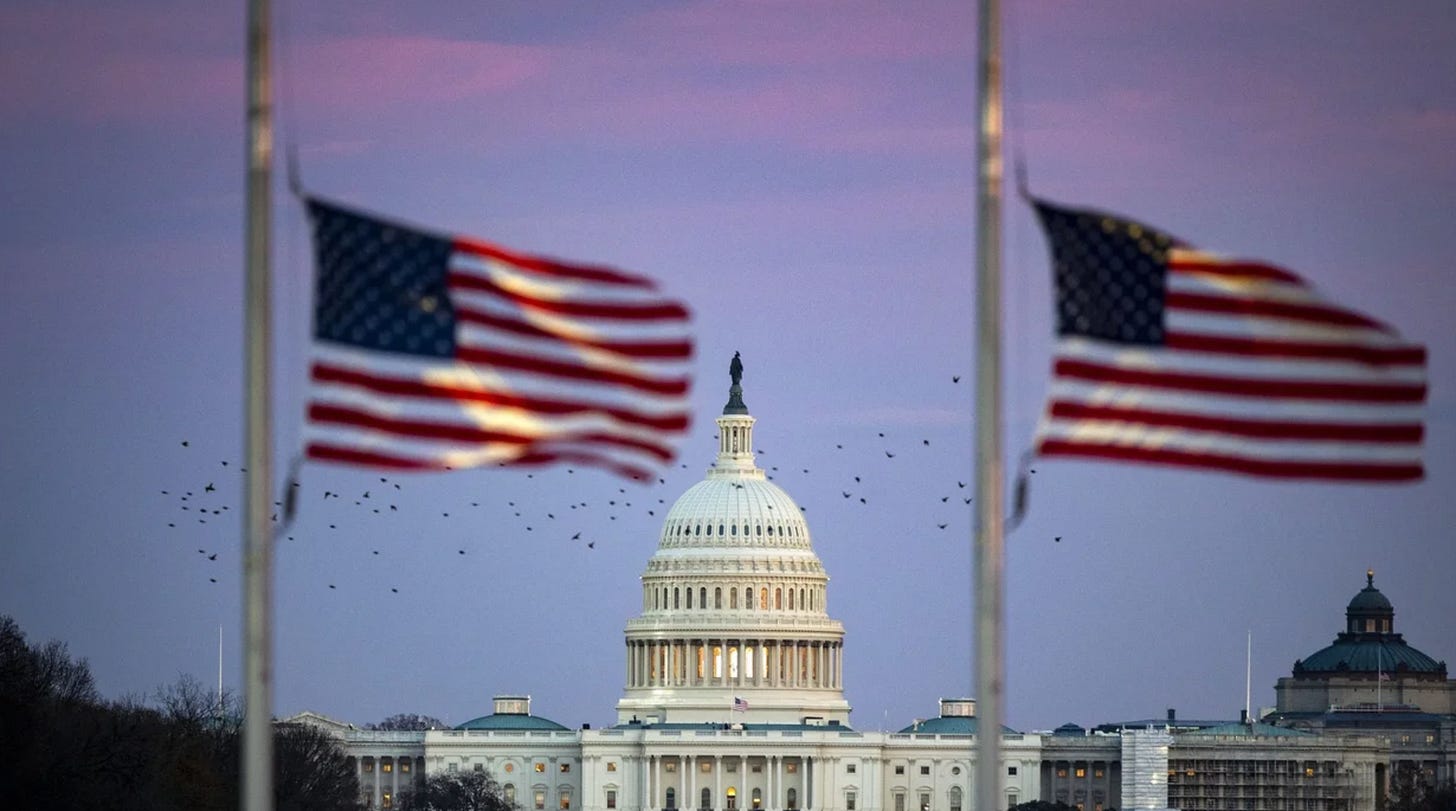
Thank you so much for this piece, Sharon. I am reminded of one of my favorite lessons from high school history, where our teacher Mrs. Lee explained the Lost Cause disinformation campaign. After walking us through how the narrative was constructed, she didn’t just tell us it was false; she asked us to do our own research to prove it, not just because someone today says so, but because the Confederates’ own words contradicted the Lost Cause narrative.
I found Texas’s Declaration of Causes, their official document explaining why they were seceding from the United States. The document explicitly states that Texas was leaving because “the servitude of the African race, as existing in these States, is mutually beneficial to both bond and free, and is abundantly authorized and justified by the experience of mankind, and the revealed will of the Almighty Creator.” Slavery was their God-given right to own people, and the northern states were therefore against God. They went on to declare that the federal government had been “proclaiming the debasing doctrine of equality of all men, irrespective of race or color” and complained that non-slaveholding states had been “proclaiming the degrading equality of the white and black races.” Not a word about abstract states’ rights in general! Just the specific right to capture and own human beings.
That lesson has stayed with me for decades. It taught me how to form opinions based on facts and primary sources, not just accept a narrative I’ve been told. It showed me that historical truth exists in documents and evidence, not in whoever happens to be telling the story at the moment. And it demonstrated that good teachers don’t just hand students conclusions. They give them the tools to reach those conclusions themselves.
This nostalgia for lifelong lessons in how to think critically, instead of regurgitating what I have been told, makes me even more enthusiastic to help teachers and students today. The educators who are losing funding while pyrotechnic shows are being planned are the same ones teaching students how to evaluate sources, question authorities, and seek truth out from under the muddy mess of misinformation being created and distributed under the guise of patriotism. They’re the ones ensuring that the next generation will know how to distinguish between history and propaganda, between commemoration and indoctrination. And that uphill battle just continues getting steeper, it seems.
I’ll be making a donation using your Teacher’s Aid tool after submitting this comment. Thank you so much for standing up for truth and for teachers. The battle for our past really is a battle for the future, and we can’t afford to let that future be shaped by those who trade historical complexity for fascism.
Thank you for telling us about this. I had no idea.
More importantly, thank you for telling us how we can resist.
I grew up in Independence, MO, where we have the Truman Library. They are dedicated to telling the unvarnished truth. I am now dedicated to supporting them. Thanks to you, I now understand it is a national imperative.